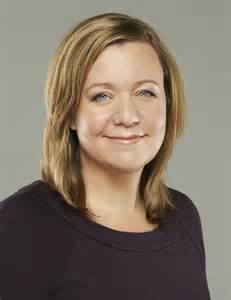017: Marina Adshade on Understanding Economics the Sexy and ‘Hard’ Way
 Dr. Marina Adshade, author of Dollars and Sex, engages in original economic research in the area of women in the economy. She has a Ph.D. from Queen’s University in Ontario Canada and currently teaches economics at the Vancouver School of Economics at the University of British Columbia.
Dr. Marina Adshade, author of Dollars and Sex, engages in original economic research in the area of women in the economy. She has a Ph.D. from Queen’s University in Ontario Canada and currently teaches economics at the Vancouver School of Economics at the University of British Columbia.
In 2008, Marina developed a unique specialization in the economics of sex and love and launched an undergraduate course titled ‘Economics of Sex and Love’, which invited her students to approach questions of sex and love through an economist’s lens. The class was an immediate hit with students and, by the time the first term started, had generated international media attention.
This culminated in the publication of her first book in 2013, ‘Dollars and Sex: How Economics Influences Sex and Love’. Marina converts economic theory into a sexy science by applying the principles of supply and demand and other market forces to matters of love, courtship, sex, intimacy, and marriage.
Marina is a regular contributor to Canada’s national newspaper The Globe and Mail and the Canadian Business Magazine. She has written for several other publications including The Wall Street Journal, the Sunday Times and the Daily Mail in the UK, and Psychology Today. She is a sought after public speaker as well as a radio and television commentator on issues relevant to all women.
Economics Themes:
In this interview, Marina mentions and discusses: The New Household Economics, supply and demand, GDP, standard of living, bargaining power, the uncanny valley, unemployment, game theory, barter and the Big Mac Index.
Economists and Economic Schools:
In this interview, Marina mentions: Gary Becker, Shoshana Grossbard, Betsey Stevenson, Justin Wolfers, Thomas Malthus, Nathan Nunn and Jeremy Greenwood.
Influencers:
Jeremy Greenwood – Engines of Liberation, Gary Becker, Betsey Stevenson and all economists who have been brave enough to take on these topics.
When Gary Becker started on the New Household economics, he was criticised.
It takes a lot of courage to talk about new ideas and to bring new ideas into the economics fold – Marina Adshade.
One has to work very hard to maintain your creativity, to work hard to maintain a willingness to assume risks in the work that you do -Marina Adshade
Advice:
Mantra:
The idea that you can take a risk and be successful and the willingness to think creatively. Apply creative thought to the work that you do can be incredibly valuable – Marina Adshade
Personal Habits:
I spend as little time as possible within my office sitting behind my desk. I like to be out in the world. If I have something that I have to write or a talk that I have to give, a lot of the thoughts that inspire that I get from being outside walking around.
In this episode, you will learn:
- why we should use sex and love in economics.
- why Dr. Adshade decided to use the topic of sex in teaching economics.
- why international media attention from Korea and Russia brought a spotlight to Marina’s Module.
- why Malthus called economics a dismal science.
- how sci-fi novels are better at predicting new technologies more so than social change.
- about the future of sex with androids.
- how the male contraceptive can increase the bargaining of power of men over women.
- how economic growth results in liberal attitudes.
- if there is a causal relationship between economic growth and gay marriage.
- who makes a better saver: men or women?
-
how Orgasms can be used to explain Game Theory.
-
how the market for sex and love is like a barter economy.
-
the similarities between Economics and Biology.
-
if you met somebody that had a variety of qualities that you valued but didn’t love, would you still marry that person?
-
about the Big Mac Index and the Blow Job Index.
Why Using Sex to Teach Economics Improves Student Engagement and Understanding
So much of what we do is about the fundamental unit of the household and so much of that comes form decisions that we make about sex and relationships. The reason why Marina decided on this approach to teaching economics was to simply engage with students. The material could be delivered in such a way that students could apply it to their own lives and internalise the theories that educators want them to understand.
How Sex Can Impact Our Social and Economic Environment and Vice Versa
Thomas Malthus called economics the ‘Dismal Science’ because he felt that economic theory predicts that whenever you have increases in technology, people would just increase the number of children they have in such a way that there would never be any gains in the standard of living. So, we were destined to be over-populated, over-crowded and poor.
The story of Malthus is based on our sexuality. Women couldn’t keep their knickers on as soon as national GDP went up a little bit.
I’m an Economic Historian. I spend most of my mornings thinking about the plough, the hoe and female sexual desire. We have 200 years of fertility changes. We have a hundred years of changes in sexual values. I think so much of this is rooted in our economics system. – Dr. Marina Adshade.
A small technological advance like contraceptives can have big social changes and can lead to the situation where we (US and Canada) are now. In Canada 35% of wives out-earn their husbands and that’s a remarkable change from where we were 30 or 40 years ago.
New technologies (on-line dating is now celebrating its 20-year anniversary) are arriving all the time and they are changing the way that we structure our relationships, the way that we bargain with our spouses and the way that we negotiate our lives within our relationships.
The future of sex with robots could be a reality by 2020. This will most definitely present some genuine challenges for us as a society when that becomes possible. The hypothesis of the ‘Uncanny Valley’ could present some problems for human-robot interaction, due to the possible revulsion or level of discomfort that a human has toward a robot. This problem could only be resolved if the robot improves its natural likeness and appearance as a human. Sex with robots has the potential to structure our relationships. It will have serious implications with our ethical challenges.
There are more imminent changes to our social economy. The introduction of male contraceptives into the market are only a matter of years away now, with human clinical trials taking place. This could potentially reduce the bargaining power of women regarding fertility to increasing the bargaining power of men. Handing the control of fertility to men has the potential to shift those dynamics.
Prostitution and other explicit markets have been transformed by technologies, where sex workers can advertise their services online. This movement expanded beyond the original market and has almost become normalised to the extent that other services are being provided online such as the Sugar Daddy – Sugar Baby concept.
The website SeekingArrangement.com reports year-on-year increases of female university student sign-ups to the site seeking a sugar daddy. Such increases are possibly the result of the mounting student debt faced by graduates and an arrangement with a sugar daddy could be a way of reducing this debt burden. Low wages and unemployment are also other factors that increases the willingness of students to enter such an arrangement. However, supply alone does not create a market, and the demand-side may not be as high. Therefore, the claim that the average amount in cash and gifts that a female sugar baby receives from her sugar daddy may not be as high as the $6,200 level.
The market for sex and love is like a barter economy. There is no currency that prices the supply or demand for sex. Perhaps there is an intangible currency in terms of the millions of stimuli that each person emits. The qualities that are revealed in this economy get picked on by other people.
Economic Growth Can Cause Social Attitudes Toward Sex to Change
Economic growth can change peoples attitudes, transitioning a country’s social norms from a conservative to a more liberal and open outlook. Many developed countries are debating about the right to gay marriage. Currently, Ireland will hold a referendum in May 2015 about right to gay marriage.
Marriage is an economic institution and we’d like to think that they create incentives for behaviour and they structure the way that our markets operate. But the institutions themselves is endogenous. Society chooses institutions that is optimal for them at any point in time.
The traditional marriage between a man and woman has historically been the optimal way of structuring a marriage, especially since men had the comparative advantage in work outside of the home. Men have the comparative advantage in wage labor and women has the comparative advantage in household production, particularly since the Industrial Revolution which caused a strict division between working and home. So, it made sense to structure marriage that way because of the gains from trade – men and women were so different.
This is no longer the case as the change in the nature of the market has eroded the man’s comparative advantage, particularly since it has become more skill-based and less physical. When men and women become similar with each other, then the nature of marriage changes. We no longer experience the gains from trade with marriage.
If marriage is no longer based on the gains from trade, then why limit marriage to men and women. Why not women with women and men with men. Marriage is more so based on love and companionship today and does not have the elements of the need for productivity.
Justin Wolfers and Bestey Stevenson talked about consumption compatibilities was the driving force of marriage in the modern period. It no longer makes sense to talk about the structure of marriage around the idea of production.
Economics and Biology: The Link
When we think of love as a biological response it is much easier to think of it in economic terms – the idea that we choose who we love. The heightened excitement that you get when you meet somebody that you’re attracted to is so similar to reactions to other experiences that people sometimes confuse them.
The height and adrenaline experienced by a person on a roller-coaster, can be the same heightened excitement that a person feels when attracted to someone. Perhaps the best first date could be the amusement park.
Blow Job Index
Instead of the Big Mac Index, The Economist could look at the Blow Job Index. They could look at variations in the prices of blow jobs around the world. There is an enormous amount of variation in the price of this service, which is largely a uniform service.
It is tied to opportunities for women and also for development. A blow job in Vancouver is possibly more expensive than a blow job in Bangkok. The problem is that it is incredibly difficult to get this data. There are web services that post prices but we’re not there yet.
A Big Mac is a standard product, irrespective of the country in which you buy it. In other words, a Big Mac in Canada is the same as a Big Mac in Ireland and beyond. However, prices will differ. A blow job, however, may not be the same in different countries due to the length of a penis. Should a blow job be more expensive in a country where the penis size is larger? If a Big Mac was twice as big in one country compared to another, then should you be expected to pay more?
Should the price of a blow job be correlated with the price of a penis? The Penis Size Worldwide Map, available on TargetMap.com
Recommended Books:
- Dollars and Sex by Marina Adshade
- Dear Committee Members by Julie Schumacher
Favourite Internet Resource:
PEW Research Centre: Pew Research Center is a nonpartisan fact tank that informs the public about the issues, attitudes and trends shaping America and the world. It conducts public opinion polling, demographic research, media content analysis and other empirical social science research.
Where To Find Marina Adshade:
- Twitter: @dollarsandsex
- Website: marinaadshade.com
Podcast: Play in new window | Download
 000: About Economic Rockstar
000: About Economic Rockstar 113: Jonathan McEvoy on Globalisation, National Autonomy, Capitalism and the Economic Resonance in Timeless Songs
113: Jonathan McEvoy on Globalisation, National Autonomy, Capitalism and the Economic Resonance in Timeless Songs 054: Christine Exley on the Economics of Volunteering, Market Failure in the Homeless Dog Market and Wagaroo
054: Christine Exley on the Economics of Volunteering, Market Failure in the Homeless Dog Market and Wagaroo 046: Shanta Devarajan on The World Bank, Quiet Corruption, Government Failure and Comparative Advantage in the MENA Region
046: Shanta Devarajan on The World Bank, Quiet Corruption, Government Failure and Comparative Advantage in the MENA Region 033: Abdullah Al-Bahrani on the Economy of Oman and How Racial Discrimination Empowered Him to Succeed in Life and in Economics.
033: Abdullah Al-Bahrani on the Economy of Oman and How Racial Discrimination Empowered Him to Succeed in Life and in Economics. 104: Russ Roberts on How Adam Smith Can Change Your Life and the Theory of Moral Sentiments
104: Russ Roberts on How Adam Smith Can Change Your Life and the Theory of Moral Sentiments 045: Jon Manning on the Art of Pricing and How Economic Theory Has Got Pricing All Wrong
045: Jon Manning on the Art of Pricing and How Economic Theory Has Got Pricing All Wrong 032: Joe Gladstone on the ‘Pay What You Want’ Pricing Model and Using Big Data to Understand You Better
032: Joe Gladstone on the ‘Pay What You Want’ Pricing Model and Using Big Data to Understand You Better 114: Deirdre McCloskey on Equality and Greed and How To Be a Very Good Economist
114: Deirdre McCloskey on Equality and Greed and How To Be a Very Good Economist 068: Daron Acemoglu on Why Nations Fail and Why Inequality Exists Between Countries
068: Daron Acemoglu on Why Nations Fail and Why Inequality Exists Between Countries